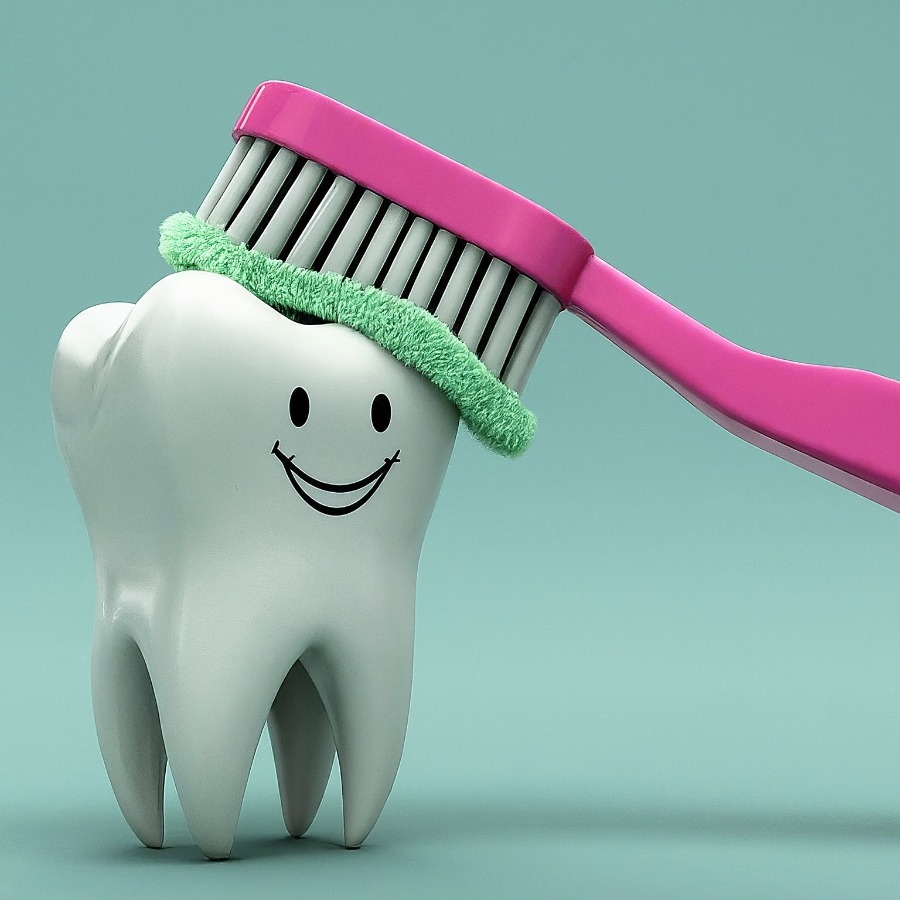Special Needs
Smiles for All: Celebrating Children’s Dental Health Month with Special Needs in Mind
February is National Children’s Dental Health Month, a time to focus on the importance of oral health for our little ones. However, for parents and caregivers of children with special needs, ensuring proper dental care can present unique challenges. The good news is that we can cultivate healthy smiles for all children, regardless of their individual needs.
Children’s Dental Health Month: Focusing on Kids with Special Needs
Children’s Dental Health Month serves as a reminder to parents and caregivers about the significance of instilling good oral hygiene habits in children from an early age. Dental health is not just about a bright smile – it directly impacts overall health and well-being. Poor oral health in childhood can lead to a range of issues, from tooth decay and gum disease to speech and nutritional problems.
Educating children on the importance of oral care early on helps establish lifelong habits that contribute to their overall health. Regular dental check-ups and preventive measures can prevent dental issues and foster a positive attitude toward dental care.
Understanding the Landscape: Special Needs and Oral Health
Children with special needs have diverse and complex medical, developmental, and behavioral conditions that can impact their oral health. Sensory sensitivities, motor skill limitations, communication difficulties, and medication use can all contribute to challenges in practicing good oral hygiene and attending dental appointments.
Here are some common concerns:
- Increased Risk of Cavities: Some medications, dietary restrictions, and difficulty brushing effectively can contribute to a higher risk of tooth decay.
- Gum Disease: Similar factors can also make children with special needs more susceptible to gum inflammation and infection.
- Dental Anxiety: Unfamiliar environments, medical equipment, and sensory overload can cause significant anxiety for some children, making dental visits stressful.
Early Intervention and Preventive Care are Key
Despite the challenges, establishing good oral hygiene habits early and maintaining regular dental care are crucial for children with special needs. Early intervention helps prevent dental problems, promotes overall health, and builds positive dental experiences.
Building Oral Hygiene Routines
- Start Early: Introduce toothbrushing with a soft infant toothbrush as soon as the first tooth erupts. Use fluoride-free toothpaste until your child is about 2 years old and then transition to a pea-sized amount of fluoridated toothpaste.
- Make it Fun: Use colorful toothbrushes, play music, or create a story to make brushing enjoyable. Let older children choose their own toothpaste with fun flavors.
- Adapt Techniques: Use specialized toothbrushes, electric toothbrushes, or flossing aids depending on your child’s needs and abilities. Consider involving therapists or occupational therapists to develop adaptive brushing techniques.
- Be Patient and Consistent: Building good habits takes time and patience. Offer positive reinforcement and celebrate successes along the way.
Making Dental Visits Positive
- Find a Special Needs Dentist: Look for a dentist with experience and training in treating children with special needs. They should have a comfortable and accessible environment with equipment adapted to accommodate various needs.
- Prepare Your Child Beforehand: Use social stories, pictures, or videos to familiarize your child with the dental office and procedures. Practice what to expect at the appointment, including sensory experiences like the sound of dental instruments.
- Communicate Effectively: Discuss your child’s specific needs and anxieties with the dentist beforehand. Be patient and advocate for your child during the appointment.
Addressing Specific Needs
- Children with Autism Spectrum Disorder (ASD): Consider visual schedules, noise-canceling headphones, and positive reinforcement strategies to manage sensory sensitivities and anxiety.
- Children with Down Syndrome: Focus on early intervention to establish good oral hygiene habits. Regular dental cleanings and fluoride treatments may be necessary.
- Children with ADHD: Break down brushing and flossing into smaller steps and use timers to maintain focus. Consider fidget toys or sensory breaks during appointments.
- Children with Cerebral Palsy: Specialized equipment and adaptive techniques might be needed for brushing and flossing. Regular professional cleanings are essential.
Oral Hygiene Practices for Kids with Special Needs
- Supervise Brushing: Children often lack the dexterity to brush their teeth effectively until around the age of 6. Parents should supervise and assist with brushing until their child can do it on their own.
- Teach Proper Technique: Demonstrate the correct brushing technique – gentle circular motions on all surfaces of the teeth and the tongue. Encourage them to brush for at least two minutes.
- Establish a Routine: Set a consistent routine for brushing and flossing. This helps children develop a habit, making it an integral part of their daily lives.
- Limit Sugary Snacks: Sugar is a primary culprit for tooth decay. Limit sugary snacks and encourage a balanced diet rich in fruits, vegetables, and dairy products.
Collaboration with the Dentist is Crucial
For parents with special needs children, communication with the dental team is instrumental to predictable and optimal outcomes. Establish clear communication with the dental team about your child’s specific needs, preferences, and any challenges they may face. This helps the dental professionals tailor their approach accordingly. Here are some other tips to keep in mind.
- Individualized Oral Care Plans: Work closely with the dental team to develop an individualized oral care plan that considers your child’s specific needs and challenges. This may include adapted techniques for brushing and flossing.
- Regular Check-ups are Essential: Children with special needs may be more prone to dental issues, making regular check-ups even more critical. Early detection and intervention can prevent complications and ensure optimal oral health.
- Desensitization Techniques: Gradual exposure to dental instruments and the dental environment can help desensitize a child with special needs. Arrange visits to the dental office before actual appointments to familiarize them with the surroundings.
Beyond February
While Children’s Dental Health Month raises awareness, remember that oral health is an ongoing journey. Integrate these tips into your daily routine and schedule regular dental checkups throughout the year. By prioritizing your child’s oral health, you are investing in their overall well-being and setting them up for a lifetime of healthy smiles.
Blende Dental Group Specializes in Special Needs
At Blende Dental Group, our pediatric dentists specialize in working with children who require more attention and different approaches to treatment.
Over 7 million children in the United States live with special needs. Something as simple as a routine teeth cleaning isn’t simple to them. It’s uncomfortable, overwhelming, and sometimes frightening, which can hinder parents from seeking the regular dental care their children deserve. There aren’t many dentists who have the specialized skills, training, and capabilities to serve these unique patients, especially when children eventually outgrow their pediatric dentist. Blende Dental Group is one of the few practices that is qualified to treat those with special needs. And we’ve been doing it for more than 20 years.
Our hospital-trained and pediatric dentists have dedicated their careers to treating children with special physical, cognitive, and emotional needs. Through an empathetic and individualized approach, our professionals deliver exceptional care to children who have difficulty visiting the dentist.
- We come to the child’s level, work within his or her comfort zone, and take small steps to ensure that they feel a sense of accomplishment and ease.
- For children unable to visit our offices, in-home care is always an option and is encouraged.
- We strategize with parents before any action takes place to learn the child’s triggers, sensitivities, and methods of soothing.
If you are caring for a child with special needs, book an appointment with our team to learn more about the numerous resources and support systems that are available to help ensure the best possible oral healthcare for your loved ones.
If you are a dentist who needs assistance with special needs patients, consider referring to Blende Dental Group. The healthcare community refers more than 60% of the patients we treat. These providers include dentists, physicians, care managers, and social workers with patients who require extensive treatment that we can deliver while they sleep, often in one visit with a follow up for routine care.
Let's brighten
that smile
The when and where are up to you.










